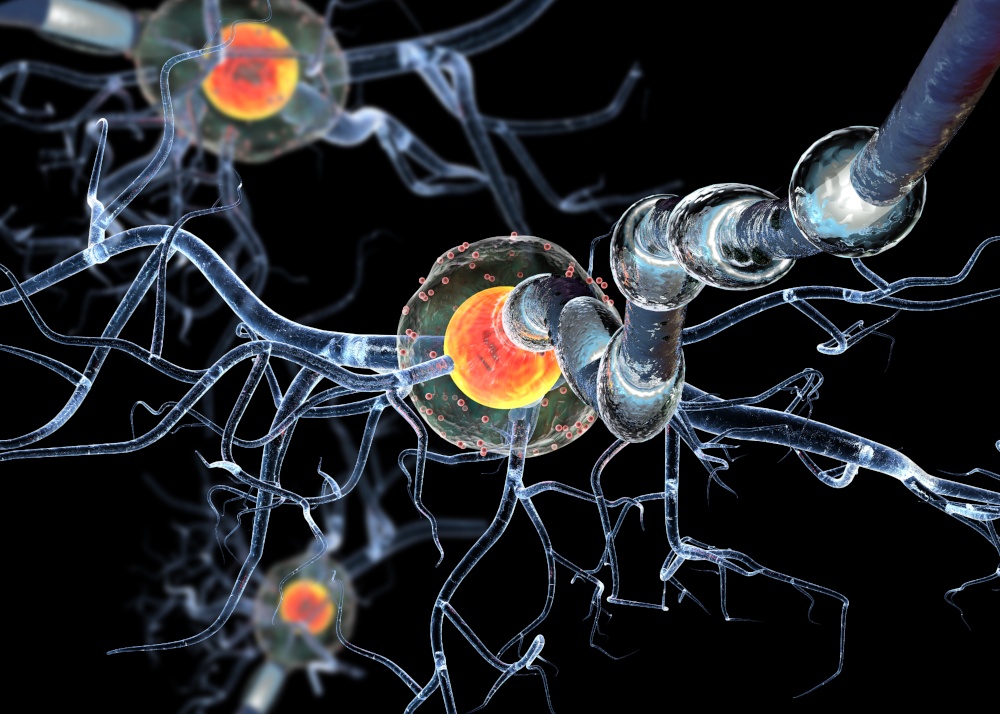
World-leading experts will be meeting at the University of Alberta's MS Centre Research Symposium on May 3 to share the latest findings on repairing damage caused by MS to the brain and spinal cord through a process called remyelination.
Leading experts in Multiple Sclerosis (MS) research from around the world are meeting in Edmonton this week to discuss new strategies for understanding and treating MS, including new approaches to a type of treatment called remyelination and regeneration.
"It is the holy grail of progressive MS research," said Christopher Power, Canada Research Chair in Neurological Infection and Immunity and co-director of the University of Alberta's MS Centre. "The UAlberta MS Centre Research Symposium is a great opportunity to hear first-hand from world-class scientists about this very exciting frontier of research."
MS is an autoimmune disease that damages the brain and spinal cord. The immune system of a person with MS will attack the protective insulation of nerves, called myelin, which help to transmit messages throughout the central nervous system. Inflammation of the myelin surrounding the nerves causes damage, which can lead to problems with co-ordination, vision, and thinking.
Scientists believe treatments that lead to remyelination and regeneration could be key to repairing damage to the brain and spinal cord caused by MS. Remyelination could also potentially stop the progress of the disease and reverse some symptoms.
Event details: UAlberta MS Centre Research Symposium
Remyelination and Regeneration in Multiple Sclerosis
May 3, 2019
8:30 a.m. - 5:15 p.m.
Telus Theatre,
University of Alberta
Edmonton, AB
More information: https://www.ualberta.ca/medicine/institutes-centres-groups/ms-centre
Promising new research
Very often, treatments contributing to remyelination involves convincing the body to stop attacking the myelin. For example, new research into drugs that work like antihistamines have been promising, said Bradley Kerr, associate professor in the Department of Anesthesiology and Pain Medicine and co-director of the U of A's MS Centre.
"A research team at the University of California San Francisco, led by Ari Green, recently completed a clinical trial of a new drug called clemastine," said Kerr. "The findings have been extremely encouraging and they suggest that myelin repair can be done even following prolonged damage."
Other remyelination approaches currently being explored include hormone therapies using progesterone and thyroid hormones, drug treatments targeting the immune system like fingolimod, and stem cell treatment.
"Stem cell treatment in particular is a very exciting area that MS research is exploring," said Kerr. "By regulating certain stem cells in the brain, we're able to tell them to become myelin and regenerate the protective covering over the nerve cells."
Bringing the very best science to the people
The fourth annual UAlberta Multiple Sclerosis Research Symposium is a free event that's open to the public and being held May 3 at the TELUS Centre. The conference brings together some of the best minds in the world in MS research to present the latest information to both scientists and to the general public, including those affected by MS.
Presenters include Ari Green from the University of California San Francisco, and Charles ffrench-Constant from the University of Edinburgh and Wendy Mackin from the University of Colorado-experts in the field of stem cell treatments for MS. U of A experts presenting at the symposium include Jason Plemel, assistant professor in the Department of Medicine, and Anastassia Voronova, assistant professor in the Department of Medical Genetics.
"We are bringing the very best science to the people to help them make informed decisions about their health care," said Power. "This symposium will provide an opportunity for researchers, students, non-profit organizations and anyone interested in MS to learn together, network and spark new international collaborations."